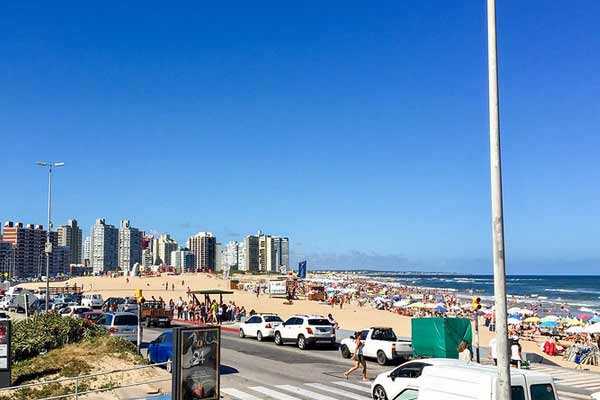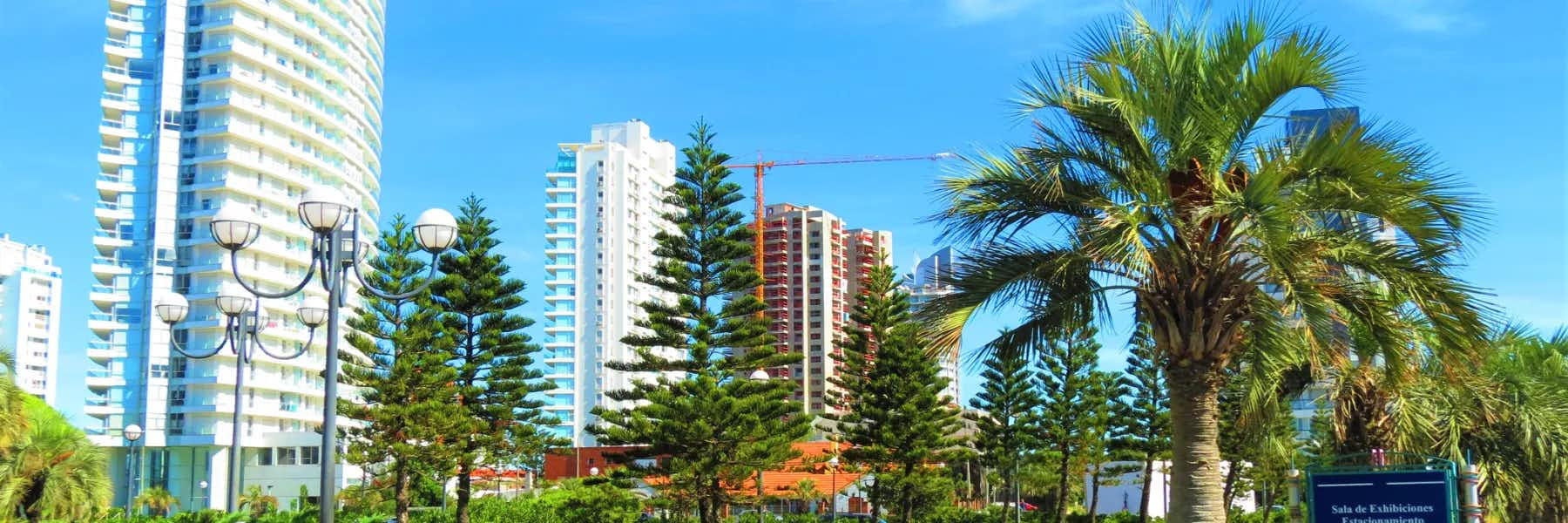Uruguay offers a high quality of life and a variety of attractive lifestyle settings, which include:
Vibrant city life in Montevideo, Uruguay’s capital
Beach resort relaxing in Punta del Este, which is also a university town
And several small towns—on Atlantic beaches, along rivers, or surrounded by farms
For these and many other reasons, a growing number of North Americans opt to retire in Uruguay.
For most, moving to Uruguay was well worth it. But a few encountered a pitfall or two along the way. And if they had it to do over again, I’d bet they would do a few things differently.
What exactly would they do differently? Following are five mistakes expats sometimes make when relocating to Uruguay, and how to avoid them.
1. Arriving Without All the Right Documents Needed to Apply For Legal Residency
To live full-time in Uruguay, you need to become a legal resident. To do this, you first enter Uruguay as a tourist, accompanied by any authenticated documents you need from your home country. Then, you submit your application in person at an immigration office.
These documents have a number of purposes—Some are used to prepare an income certificate, proving your ability to support yourself in Uruguay, others allow you to open your Uruguayan bank account. Additional documents are provided directly to the immigration office after they’re translated into Spanish and registered. In the case of your translated and registered birth certificate, you need that to get your Uruguayan ID card.
It can be a lot to configure, and most residency applicants, once in Uruguay, hire a local immigration consultant to manage the process.
But sometimes, an applicant gets to Uruguay and learns they don’t have the necessary documents. And it can be difficult to get authenticated documents from your home country when you’re in Uruguay.
Many residency applicants learn what documents to bring with them from a website list, a handout, or a presentation by an immigration consultant. While such sources can be helpful, it’s generalized information, and may not include every detail you need to know.
For example, some of the documents you bring from home are time-sensitive and can expire. And documents you need to prove your income can vary depending on your situation.
So, how do you ensure you arrive in Uruguay with all the right documents? I’d recommend you hire an immigration consultant remotely before flying to Uruguay to make your application. That way, they can:
Tell you exactly what to bring for your individual situation
Answer questions that come up along the way
And help double-check that you’ve got everything you’ll need before getting on the plane to Uruguay.
2. Getting Caught Up in a Tax Issue in Your Home Country
Even after you move to Uruguay and become a legal resident, your home country may still possess taxing and financial reporting authority over you. For example:
Most expats from the U.S. must continue to file a U.S. tax return each year.
People from the U.S. must also report their bank and/or financial accounts outside the U.S. to the U.S. Treasury Department if they contain an aggregate value that exceeds USD 10,000.
Additionally, some U.S. states may view you as a tax resident even after you move to Uruguay.
Note: U.S. states determine if you’re a tax resident by applying a number of residency tests. For example, some states may consider you a tax resident if you have a driver’s license in the state, bank in the state, or use the services of an attorney or accountant in their state.
To avoid potential problems, consult an accountant familiar with expat matters before moving to Uruguay. So, they can:
Guide you through the process of cutting tax ties with your former U.S. state. (This might include establishing residency in a no-income-tax state before moving to Uruguay.)
Advise you on the best way to set up your banking for U.S. tax and reporting purposes.
Help ensure you file required tax returns and reports when due.
3. Getting Stuck With a Large Hospital Bill
Uruguay is known for affordable private healthcare plans, called mutualistas, which provide private comprehensive coverage for around $70 per month. On top of that, Uruguay’s public healthcare system provides a safety net, providing low-cost care to all legal residents.
So, how does an expat in Uruguay get stuck with a large hospital bill? Because of a gap in their medical coverage.
When you visit Uruguay, you’re required to carry a travel insurance policy that covers medical emergencies. Expats can end up with a gap in their coverage after their travel insurance policy expires. And before they’ve signed up with a local private healthcare plan, and before they become a legal resident.
To prevent a gap in coverage, get signed up with a local healthcare plan soon after you arrive in Uruguay—before your travel insurance expires.
Note: Many immigration consultants in Uruguay can help you get signed up with a private healthcare plan at the same time, they help you become a legal resident.
4. Running Short on Money During Your Move

Another mishap some expats encounter is running short of money during their move.
How does this happen? Usually, from not considering all the costs associated with their move. They may calculate airfare to Uruguay and their monthly living budget—all based on good research.
But then, they allot a dollar figure for “other costs” without looking closely at each of the other costs.
So, what relocation costs should you be sure to include and research?
The costs of becoming a legal resident, such as your immigration consultant’s professional fee, plus expenses, such as translations and the preparation of your income certificate.
Rental move-in costs*
Furniture and household goods. (This is often a big expense, whether you ship your household goods from your home country, or start fresh, buying all new things in Uruguay.)
Buying appliances. (It usually makes sense to buy your appliances in Uruguay. They are the right voltage—230 V at 50Hz. And you can get repair parts.)
You may also want to set aside additional money for things that aren’t necessities but are nice. This might include a few months of Spanish lessons or taking a road trip to explore your newly adopted country.
It’s worth noting that security deposits for long-term apartment leases in Montevideo, Uruguay’s capital, are generally higher than in the U.S., often equal to several months' rent.
5. Not Immersing Yourself in the Culture
Retiring abroad provides an ideal opportunity to learn about a new place, culture, and language. Yet it’s an opportunity some expats don’t take advantage of.
This is a trap many expats fall into, where they spend all their time online and/or with other expats. In short, they live in an “expat bubble”—with little interaction with the new, rich, and interesting landscape and culture around them.
How do you prevent this from happening?
Start by reading up on Uruguay. Read about its geography, flora and fauna, history, and customs.
Take Spanish classes. (It’s a good way to get out, meet new people, and have new experiences.)
Get involved with a social group that includes locals. For example, join a wine tour group, a tennis club, or a church. Find a place to volunteer. Or take up beach fishing or tango lessons.
Tip: Find social groups that include English-speaking Uruguayans, who can help provide a cultural bridge to better understand the ins and outs of life in Uruguay.
Related Articles
Discover Your Ideal Retirement in Uruguay
